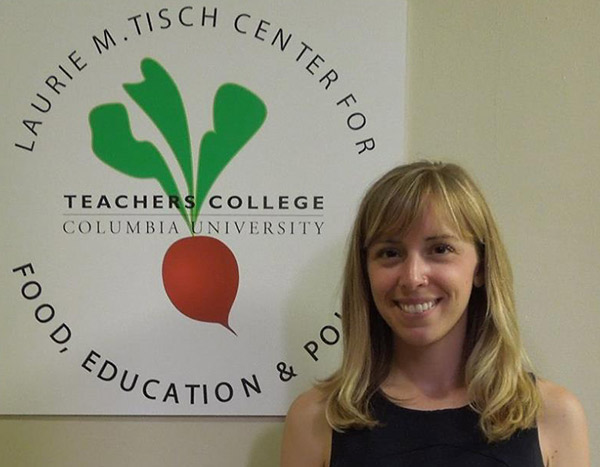Five Reasons the Next President Should Prioritize Nutrition Education

By Camille Veri
Food politics hasn’t gone much further than taco bowls and hot sauce during this election season. This is problematic considering food and agriculture policy in the United States encompasses major voter issues like healthcare, the economy, and climate change. The next president will sign off on a new Farm Bill and (most likely) the Child Nutrition Reauthorization. From the get-go, a plan to promote equity, health, and sustainability will be critical. Federal support for nutrition education is an effective, bipartisan way to further these food justice priorities.
Nutrition education provides people with inspiration, empowerment, and practical skills to make healthy choices. It also fosters a supportive environment in which nutritious food is an exciting, accessible option. This doesn’t just mean showing kids MyPlate and telling them to eat fruits and vegetables daily. It’s an engaging, interdisciplinary approach that often includes gardening and cooking alongside experiential classroom lessons about nutrition and food systems. Below are five reasons that nutrition education is a matter of social, economic, and environmental justice that must be supported with increased funding and strong policy measures in the next administration.
[Read more TC commentary on education and the 2016 presidential campaign]

Public Health
Youth diabetes and obesity rates have significantly increased in recent decades. Junk food is affordable, ubiquitous, and relentlessly marketed to kids. Add our innate predisposition to crave sugary, fatty foods, and the deck is stacked against kids making healthy choices. Encouraging healthy eating habits in kids can reduce the risk of chronic diseases and the long-term healthcare costs associated with them.
Environmental Stewardship
Kids aren’t often challenged to think about how food gets to their plates. When a child gets to harvest tomatoes and use them to bake a pizza from scratch, she can make connections between food and nature - connections that are rare in supermarkets and restaurant settings. Nutrition education empowers kids by connecting food production to conservation and climate change.
Access & Equity
Eating well is not as simple as buying and cooking fresh food. Families face a range of barriers to eating nutritiously, and an estimated 15.3 million children in the United States lack access to nourishing meals. Nutrition education directly complements efforts to address this injustice, through getting kids excited to eat foods served through the National School Lunch and Breakfast programs.
Economic Opportunities
The future needs diverse farmers. Imagine a school garden – a second grade class harvests strawberries, learns about the three sisters, and tastes basil for the first time. This will not only help kids become more informed consumers, but also may shape their career and educational aspirations. This is especially relevant at a time when both a new generation of farmers and a cultural shift in our perception of food production are in high demand.
Community and Culture
Good food brings people together. In a classroom, from-scratch salsa with fresh herbs and tomatoes is more than a healthy snack. It’s an opportunity for students to experience the communal and cultural aspects of cooking and exchange old and new knowledge with their friends and families.
Support for nutrition education is support for each of these bipartisan values. Read up on Team Nutrition, SNAP-Ed, and Farm to School for examples of what is currently being accomplished on a federal level. Contact the Clinton and Trump campaigns and stress to the candidates the importance of nutrition education in furthering food access, health, and opportunity for all children in the United States.
Camille Veri, an MA candidate in Nonprofit Management and Social Entrepreneurship at Indiana University, served as a Policy Intern at the Laurie M. Tisch Center for Food, Education & Policy at Teachers College.
Published Thursday, Oct 6, 2016